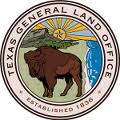Oops.
In the waning days of the 82nd Legislature, state lawmakers came up with a plan to help cushion the blow of $5.4 billion in cuts to public education.
State Rep. Rob Orr, R-Burleson, proposed a constitutional amendment that he said could bring an additional $300 million to public schools. It unanimously cleared both the House and Senate. Orr’s measure became Proposition 6, which voters passed in November.
But that money has hit a roadblock on its way to public schools — and what looked like an easy fix for hard-pressed budget writers last May has turned into a headache that awaits their return in January.
The amendment allowed the School Land Board, which operates out of the General Land Office, to put a portion of earnings from investments on real estate assets into the Available School Fund, which along with property and sales taxes helps pay for public education. Last week, the little-watched board that oversees the state’s public school lands decided not to distribute the money. Commissioner Jerry Patterson, who sits on the three-member board, said it wanted to protect the funds for upcoming investment opportunities.
Usually the proceeds from the sale and management of public school lands would go into a $26 billion trust whose revenue feeds into what’s called the Available School Fund. Proposition 6 made it so the School Land Board, if it chose, could bypass that step and put money directly into the fund.
“We anticipated this funding for public education,” said Jason Embry, a spokesman for House Speaker Joe Straus, R-San Antonio. “We’re evaluating the impact on the budget and working with Commissioner Patterson to ensure there is no impact to public schools.”
Whether lawmakers should have expected the money is a matter of dispute. But the $300 million made it into the budget as part of general funds used to support school operations, contingent upon the constitutional amendment’s passage in November and the School Land Board’s approval of the transfer. During the special session last June, the Legislature added a provision to the appropriations bill that reduced general revenue funding to public education by $300 million if the amendment passed. It was to be replaced with the same amount from the Available School Fund with the board’s approval — but there was no provision to add that money back in if that didn’t happen.
“I was told that there would be $300 million going into the Available School Fund. Everything was put in place to allow to that to happen,” said Orr, who said the General Land Office agreed to transfer the money if the amendment passed. “I believe it needed to happen, so I’m not sure why it didn’t.”
Patterson said he did not recall committing to a transfer of the money and that his office had been unable to find “any evidence or documents or memos or testimony” that he did.
“I don’t have any control over what was written into the budget or what was made contingent. I don’t know who wrote that in there or why,” he said. “Somebody wrote a contingency rider assuming the answer would be yes.”
See here, here, and here for some background. If you look in the comments on those posts, you will see that Commissioner Patterson was never on board with this idea, so if the Lege was assuming that the School Land Board was going to go along with this idea, well, you know what they say about those who assume. I don’t think I realized till I read this story that the Lege had actually appropriated the $300 million based on that assumption; I must have been assuming that they would have made a supplemental appropriation at a later date once the Land Board signed off on it. Let that be a lesson to me. They’ll have to make a supplemental appropriation now, so you can add another $300 million to the Lege’s tab of unmet obligations from 2011. Good thing the Rainy Day Fund is full, because we’re really going to need it next year.
“Rather than trying a real solution to school finance they keep doing the little gimmicks and sleight of hands,” said David Bradley, the Beaumont Republican who chairs the Board of Education’s finance committee. “The Legislature is the problem. It’s totally improper for them to be pulling that kind of money out of these trust funds to use for general revenue funding.”
I hate having to agree with David Bradley, but he’s right. It’s on the Lege to fund school finance, and with the job they’ve been doing it’s no wonder we’re back in court a mere seven years after the last lawsuit was decided. I’m sure this seemed like free money to them – I admit, my first reaction was along those lines – and maybe that helped salve a bit of the guilt from having slashed $5.4 billion (and having voted to slash over $10 billion) from public education. But it was never a solution even if it did work.


Pingback: School Land Board votes to transfer $300 million to Available School Fund – Off the Kuff